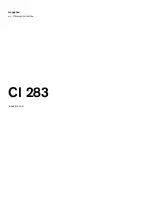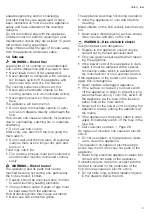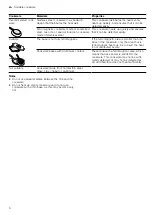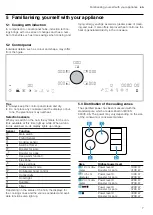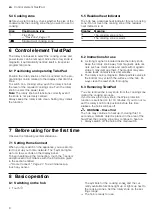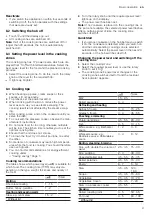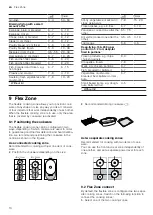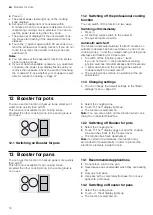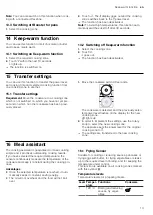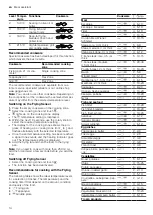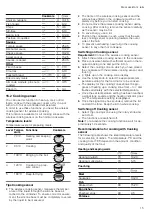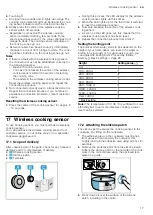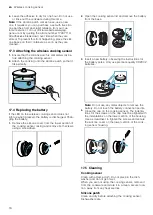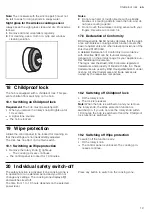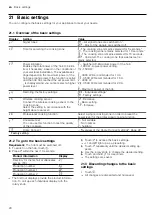
Environmental protection and saving energy
en
5
Damage
Cause
Action
Damage to the cook-
ware or the appliance
Cooking without contents.
Never place or heat empty cookware on a
hot cooking zone.
Glass damage
Melted material on the hot cooking zone or
hot pot lid on the glass.
Do not place greaseproof paper or alu-
minium foil nor plastic containers or pot lids
on the hob.
Overheating
Hot cookware on the control panel or on the
frame.
Never place hot cookware on these areas.
ATTENTION!
A fan is located on the underside of this hob.
▶
If a drawer is located on the underside of the hob,
do not store any small or pointed objects, paper or
tea towels in it. These objects may be sucked in
and damage the fan or impair the cooling.
▶
There must be a clearance of at least 2 cm between
the contents of the drawer and the fan entry point.
3 Environmental protection and saving energy
3.1 Disposing of packaging
The packaging materials are environmentally compat-
ible and can be recycled.
▶
Sort the individual components by type and dispose
of them separately.
3.2 Saving energy
If you follow these instructions, your appliance will use
less energy.
Select the cooking zone to match the size of your
pan. Centre the cookware on the hob.
Use cookware whose base diameter is the same dia-
meter as the hotplate.
Tip:
Cookware manufacturers often give the upper
diameter of the saucepan. It is often larger than the
base diameter.
¡
Unsuitable cookware or incompletely covered cook-
ing zones consume a lot of energy.
Cover saucepans with suitable lids.
¡
Cooking without a lid consumes considerably more
energy.
Lift lids as infrequently as possible.
¡
When you lift the lid, a lot of energy escapes.
Use a glass lid.
¡
You can see into the pan through a glass lid
without having to lift it.
Use pots and pans with flat bases.
¡
Uneven bases increase energy consumption.
Use cookware that is suitable for the quantity of food.
¡
Large items of cookware containing little food need
more energy to heat up.
Cook with only a little water.
¡
The more water that is contained in the cookware,
the more energy is required to heat it up.
Turn down to a lower power level early on.
¡
If you use an ongoing power level that is too high,
you will waste energy.
Product Information according (EU) 66/2014 can be
found on the attached appliance pass and online on
the product page for your appliance.
4 Suitable cookware
Cookware that is suitable for induction cooking must
have a ferromagnetic base, i.e. it must be attracted by
a magnet. The base must also match the size of the
cooking zone. If cookware is not detected on a cooking
zone, place this on the cooking zone with the next
smallest diameter.
4.1 Size and characteristics of the cookware
To correctly detect the cookware, take the size and the
material of the cookware into consideration. All cook-
ware bases must be perfectly flat and smooth.
You can use Cookware test to check whether your
cookware is suitable. You can find more information
about this under
→

